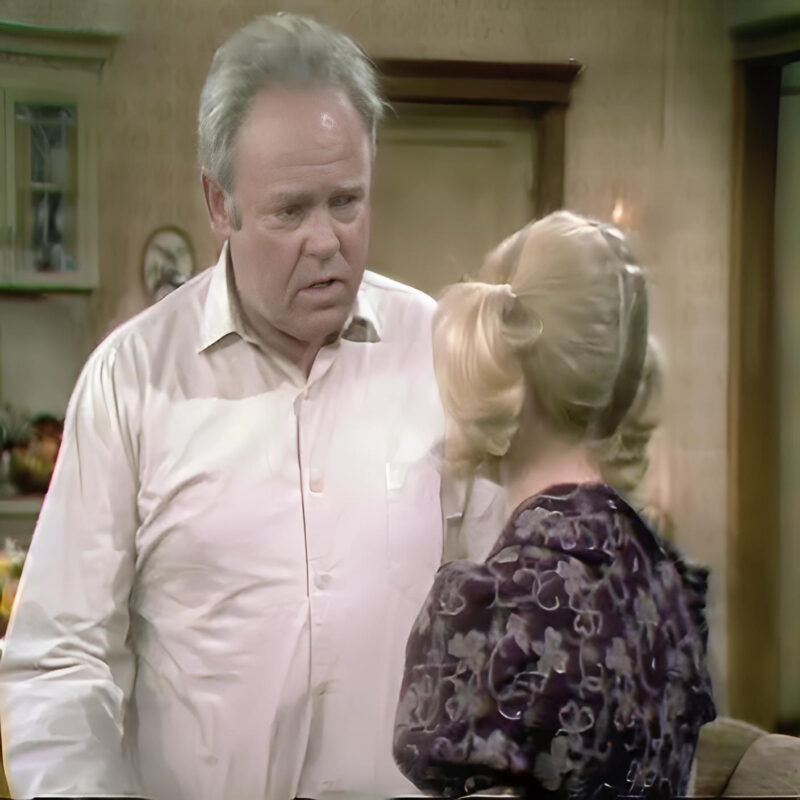
In the realm of television, bearing the mantle of the main character doesn’t always imply being a moral paragon. Sometimes, the protagonist is neither likable nor admirable. Today, exploring gray morality in primary characters has become a popular trend, but this can be traced back to one of the landmark sitcoms of the 1970s: All in the Family. Rob Reiner, who played Michael Stivic, often noted that Archie Bunker, the show’s central character, was never meant to be a lovable, relatable hero.
Archie Bunker was a character who could easily be anyone’s neighbor, and the show’s producers and cast wanted to present a realistic portrayal of various character types and let the audience respond. This approach, however, led to unexpected reactions.
Carroll O’Connor vs. Archie Bunker
Archie Bunker, played by Carroll O’Connor, was notorious for his blunt statements, grating comments, and judgments rooted in outdated thinking. Even the show’s creator, Norman Lear, believed Archie needed a counterbalance, leading to the creation of Maude, who was designed to “destroy” Archie.
O’Connor himself was starkly different from his on-screen persona. Rob Reiner, reflecting on this contrast, noted, “Everyone associated with the show was liberal-minded, and we were simply presenting both sides and letting the audience decide. Unfortunately, a lot of the audience simply fell in love with Archie.”
The Plan, Its Risks, and Unintended Results
The producers and cast never intended for Archie Bunker to be seen as lovable. As Outsider notes, fans of the show even started wearing clothing promoting Archie Bunker for president, a reaction that was far from what Lear and the team envisioned. “Lovable” was never an adjective meant to describe Archie Bunker. Reiner admitted, “I know we were criticized by some for making a bigot lovable, but that was neither our intention nor that of (producer) Norman Lear.”
Norman Lear’s vision was to present contemporary social issues to the audience, a hallmark of his sitcoms. All in the Family tackled relevant topics of its time, despite some unintended audience reactions. The show became especially personalized during its fourth season when the entire cast was recruited to work on the scripts, highlighting the dichotomy between intention and realization in creative work.
Archie Bunker’s Complex Legacy
The legacy of Archie Bunker is a testament to the unpredictable nature of audience reception. What was intended as a satirical portrayal of a bigoted character became, for some viewers, a figure to be admired. This unintended heroism speaks volumes about the complexities of storytelling and the diverse interpretations it can evoke.
All in the Family will always be remembered for its fearless exploration of sensitive subjects and its impact on television history. It presented characters that were real, flawed, and reflective of society’s prejudices and concerns. Archie Bunker, with all his imperfections, remains one of television’s most memorable characters, a figure who inadvertently became a cultural icon.
What do you think of Archie Bunker’s character? The discussions he provoked and the reactions he elicited continue to be relevant, offering a powerful example of how fiction can mirror and influence real life.
